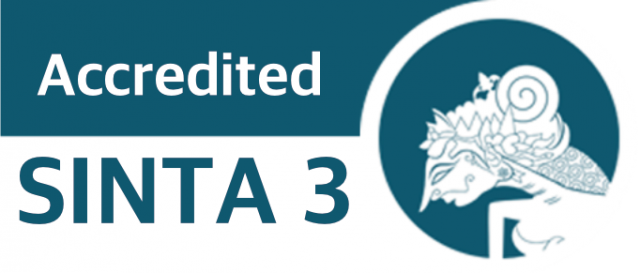Implementasi Mata Pelajaran Akidah Akhlak dalam Pembentukan Karakter Siswa Madrasah Ibtidaiyah Negeri 3 Tapanuli Tengah
Abstract
Keywords
Full Text:
PDFReferences
Adisusilo, S.J.R. (2012) Pembelajaran Nilai-Karakter ; Kontruktivisme dan VCT sebagai Inovasi Pendekatan Pembelajaran Afektif, Jakarta: Rajawali Pers, 2012
Arikunto, S, (2012). Prosedur Penelitian suatu Pendekatan Praktek, Jakarta: Rineka Cipta.
Brenen, J. (2004). Memadu Penelitian Kualitatif Dan Kuantitatif Yogyakarta: Pustaka Pelajar
Hidayatullah, M.F. (2010). Pendidikan Karakter: Membangun Peradaban Bangsa, (Surakarta : Yuma Pustaka, 2010).
Mawardi, I. (2005) “Implikasi Filosofis Pendidikan Islam dalam Pembinaan Etika Sosial”Jurnal Cakrawala, (vol. I, No. 2, Januari/2005), hlm.104.
Nata, A. (2010). Ilmu Pendidikan Islam, Jakarta: Kencana.
Nata, A. (2012). Pemikiran Pendidikan Islam dan Barat, Jakarta: Rajawali Press.
Nawawi, H. & Martini, M. (1995). Instrument Penelitian Bidang Sosial, Yogyakarta: Gajahmada, University Press.
Ramayulis (2005). Metodologi Pendidikan Agama Islam, Jakarta: Kalam Mulia.
Samani, M. dan Hariyanto. (2011). Pendidikan Karakter, konsep dan model. Bandung: Remaja Rosdakarya.
Setiawan, D. & Setiawan, F. (2014). Pendidikan Karakter Dalam Perspektif Kewarganegaraan. Medan : Larispa.
Setiawan, D. (2017), Kontribusi Tingkat Pemahaman Konsepsi Wawasan Nusantara terhadap Sikap Nasionalisme dan Karakter Kebangsaan, Jurnal Pendidikan Ilmu-Ilmu Sosial, 9 (1): 20-27.
Sugiyono. (2005). Memahami Penelitian Kualitatif: dilengkapi dengan Contoh Proposal dan Laporan Penelitian, Bandung: Alfabeta.
Uhbiyati, (2012). Dasar-dasar Ilmu Pendidikan Islam, Semarang: Fakultas Tarbiyah IAIN Walisongo Semarang.
UU No. 20 Tahun 2003 Tentang Sisdiknas, Dirjend Pendidikan Islam Depag RI.
Wibowo, A. (2012) Pendidikan Karakter, Strategi Membangun Karakter Bangsa Berperadaban, Yogyakarta: Pustaka Pelajar.
Zubaidi, (2011). Desain Pendidikan Karakter, Jakarta: Prenada Media Group.
DOI: https://doi.org/10.24114/antro.v4i2.12030
Article Metrics
Abstract view : 1390 timesPDF - 1226 times
Refbacks
- There are currently no refbacks.

This work is licensed under a Creative Commons Attribution 4.0 International License

